Latest Sheet Music
Beatles

The Beatles were an English rock band formed in Liverpool in 1960. Their best-known lineup, consisting of John Lennon, Paul McCartney, George Harrison, and Ringo Starr, became the greatest and most influential act of the rock era, introducing more innovations into popular music than any other rock band of the 20th century. Rooted in skiffle and 1950s rock and roll, the Beatles later utilized several genres, ranging from pop ballads to psychedelic rock, often incorporating classical elements in innovative ways. In the early 1960s, their enormous popularity first emerged as "Beatlemania", but as their songwriting grew in sophistication, they came to be perceived by many fans and cultural observers as an embodiment of the ideals shared by the era's sociocultural revolutions.
The band built their reputation playing clubs in Liverpool and Hamburg over a three-year period from 1960. Manager Brian Epstein moulded them into a professional act and producer George Martin enhanced their musical potential. They gained popularity in the United Kingdom after their first modest hit, "Love Me Do", in late 1962. They acquired the nickname the "Fab Four" as Beatlemania grew in Britain over the following year, and by early 1964 they had become international stars, leading the "British Invasion" of the United States pop market. From 1965 on, the Beatles produced what many critics consider their finest material, including the innovative and widely influential albums Rubber Soul (1965), Revolver (1966), Sgt Pepper's Lonely Hearts Club Band (1967), The Beatles (1968), and Abbey Road (1969). After their break-up in 1970, they each enjoyed successful musical careers. Lennon was shot and killed in December 1980, and Harrison died of lung cancer in November 2001. McCartney and Starr remain musically active.
The band built their reputation playing clubs in Liverpool and Hamburg over a three-year period from 1960. Manager Brian Epstein moulded them into a professional act and producer George Martin enhanced their musical potential. They gained popularity in the United Kingdom after their first modest hit, "Love Me Do", in late 1962. They acquired the nickname the "Fab Four" as Beatlemania grew in Britain over the following year, and by early 1964 they had become international stars, leading the "British Invasion" of the United States pop market. From 1965 on, the Beatles produced what many critics consider their finest material, including the innovative and widely influential albums Rubber Soul (1965), Revolver (1966), Sgt Pepper's Lonely Hearts Club Band (1967), The Beatles (1968), and Abbey Road (1969). After their break-up in 1970, they each enjoyed successful musical careers. Lennon was shot and killed in December 1980, and Harrison died of lung cancer in November 2001. McCartney and Starr remain musically active.
Luciano Berio

Luciano Berio, Cavaliere di Gran Croce OMRI (October 24, 1925 – May 27, 2003) was an Italian composer. He is noted for his experimental work (in particular his 1968 composition Sinfonia for voices and orchestra and his series of numbered solo pieces titled Sequenza) and also for his pioneering work in electronic music.
Berio's electronic work dates for the most part from his time at Milan's Studio di Fonologia. One of the most influential works he produced there was Thema (Omaggio a Joyce) (1958), based on Cathy Berberian reading from James Joyce's Ulysses. A later work, Visage (1961) sees Berio creating a wordless emotional language by cutting up and rearranging a recording of Cathy Berberian's voice.
In 1968, Berio completed O King a work which exists in two versions: one for voice, flute, clarinet, violin, cello and piano, the other for eight voices and orchestra. The piece is in memory of Martin Luther King, who had been assassinated shortly before its composition. In it, the voice(s) intones first the vowels, and then the consonants which make up his name, only stringing them together to give his name in full in the final bars.
The orchestral version of O King was, shortly after its completion, integrated into what is perhaps Berio's most famous work, Sinfonia (1967–69), for orchestra and eight amplified voices. The voices are not used in a traditional classical way; they frequently do not sing at all, but speak, whisper and shout. The third movement is a collage of literary and musical quotations. A-Ronne (1974) is similarly collaged, but with the focus more squarely on the voice. It was originally written as a radio program for five actors, and reworked in 1975 for eight vocalists and an optional keyboard part. The work is one of a number of collaborations with the poet Edoardo Sanguineti, who for this piece provided a text full of quotations from sources including the Bible, T. S. Eliot and Karl Marx.
Berio's electronic work dates for the most part from his time at Milan's Studio di Fonologia. One of the most influential works he produced there was Thema (Omaggio a Joyce) (1958), based on Cathy Berberian reading from James Joyce's Ulysses. A later work, Visage (1961) sees Berio creating a wordless emotional language by cutting up and rearranging a recording of Cathy Berberian's voice.
In 1968, Berio completed O King a work which exists in two versions: one for voice, flute, clarinet, violin, cello and piano, the other for eight voices and orchestra. The piece is in memory of Martin Luther King, who had been assassinated shortly before its composition. In it, the voice(s) intones first the vowels, and then the consonants which make up his name, only stringing them together to give his name in full in the final bars.
The orchestral version of O King was, shortly after its completion, integrated into what is perhaps Berio's most famous work, Sinfonia (1967–69), for orchestra and eight amplified voices. The voices are not used in a traditional classical way; they frequently do not sing at all, but speak, whisper and shout. The third movement is a collage of literary and musical quotations. A-Ronne (1974) is similarly collaged, but with the focus more squarely on the voice. It was originally written as a radio program for five actors, and reworked in 1975 for eight vocalists and an optional keyboard part. The work is one of a number of collaborations with the poet Edoardo Sanguineti, who for this piece provided a text full of quotations from sources including the Bible, T. S. Eliot and Karl Marx.
Tenmon
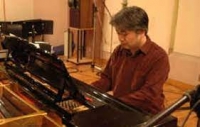
Tenmon (天門), born Atsushi Shirakawa (白川 篤史, Shirakawa Atsushi), is a Japanese music composer from Tokyo, Japan born October 4, 1971. He worked in the Nihon Falcom Corporation as one of the members of Falcom Sound Team J.D.K.. During his time with Falcom, he has composed much music for Falcom games, most notably Brandish.
Having known Makoto Shinkai as a coworker in Minori he has composed music for Shinkai's works since She and Her Cat. He is perhaps best known for creating the soundtracks for Shinkai's subsequent works, Voices of a Distant Star, The Place Promised in Our Early Days, 5 Centimeters Per Second and his final Shinkai collaboration being Children Who Chase Lost Voices from Deep Below.
Having known Makoto Shinkai as a coworker in Minori he has composed music for Shinkai's works since She and Her Cat. He is perhaps best known for creating the soundtracks for Shinkai's subsequent works, Voices of a Distant Star, The Place Promised in Our Early Days, 5 Centimeters Per Second and his final Shinkai collaboration being Children Who Chase Lost Voices from Deep Below.
Traditional

Loverboy

Loverboy is a Canadian rock band formed in 1979. They were established in Calgary, Alberta, but are currently based in Vancouver, British Columbia. Loverboy's hit singles, particularly "Turn Me Loose" and "Working for the Weekend", have become arena rock staples and are still heard on many classic rock and classic hits radio stations across Canada and the United States.After being rejected by many American record labels, they signed with Columbia/CBS Records Canada and began recording their first album on March 20, 1980. Loverboy's founding members were lead singer Mike Reno (previously with Moxy as Mike Rynoski), guitarist Paul Dean (previously with Scrubbaloe Caine and Streetheart) keyboardist Doug Johnson, bassist Scott Smith, and drummer Matt Frenette. Throughout the 1980s, Loverboy accumulated numerous hit songs in Canada and the United States, earning four multi-platinum albums and selling millions of records. Except for a brief breakup from 1988 to 1991, the band has continued to perform live shows regularly.
Paul Gitlitz
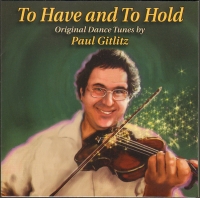
Paul is a very prolific multi instrumentalist musician who plays many instruments, he gives lessons in fiddle, mandolin, tenor banjo, guitar.His is the fiddle instructor at the Nanaimo Conservatory of Music. He has published several tune books and his tunes have been included in many others. Many of his pieces have been recorded by various artists. He also runs his own recording studio. I think he also has a good sense of humour judging by some of the somewhat whimsical titles of some of his tunes.
Agnieszka Osiecka

Agnieszka Osiecka was a Polish poet, writer, author of theatre and television screenplays, film director and journalist. She was a prominent Polish songwriter, having authored the lyrics to more than 2000 songs, and is considered an icon of Polish culture.
Alan Menken

Alan Menken (born July 22, 1949 in New Rochelle, New York) is an American Broadway and an eight-time Academy Award winning composer and pianist. Menken has collaborated with several renowned lyricists including Howard Ashman (1950-1991), Tim Rice and Stephen Schwartz.
Tchaikovsky

Pyotr Il'yich Tchaikovsky (May 7 1840 â November 6 1893) was a Russian composer of the Romantic era. While not part of the nationalistic music group known as "The Five", Tchaikovsky wrote music which, in the opinion of Harold Schonberg, was distinctly Russian: plangent, introspective, with modally-inflected melody and harmony.
Aesthetically, Tchaikovsky remained open to all aspects of Saint Petersburg musical life. He was impressed by Serov and Balakirev as well as the classical values upheld by the conservatory. Both the progressive and conservative camps in Russian music at the time attempted to win him over. Tchaikovsky charted his compositional course between these two factions, retaining his individuality as a composer as well as his Russian identity. In this he was influenced by the ideals of his teacher Nikolai Rubinstein and Nikolai's brother Anton.
Tchaikovsky's musical cosmopolitanism led him to be favored by many Russian music-lovers over the "Russian" harmonies and styles of Mussorgsky, Borodin and Rimsky-Korsakov.
Nonetheless he frequently adapted Russian traditional melodies and dance forms in his music, which enhanced his success in his home country. The success in St. Petersburg at the premiere of his Third Orchestral Suite may have been due in large part to his concluding the work with a polonaise. He also used a polonaise for the final movement of his Third Symphony.
Aesthetically, Tchaikovsky remained open to all aspects of Saint Petersburg musical life. He was impressed by Serov and Balakirev as well as the classical values upheld by the conservatory. Both the progressive and conservative camps in Russian music at the time attempted to win him over. Tchaikovsky charted his compositional course between these two factions, retaining his individuality as a composer as well as his Russian identity. In this he was influenced by the ideals of his teacher Nikolai Rubinstein and Nikolai's brother Anton.
Tchaikovsky's musical cosmopolitanism led him to be favored by many Russian music-lovers over the "Russian" harmonies and styles of Mussorgsky, Borodin and Rimsky-Korsakov.
Nonetheless he frequently adapted Russian traditional melodies and dance forms in his music, which enhanced his success in his home country. The success in St. Petersburg at the premiere of his Third Orchestral Suite may have been due in large part to his concluding the work with a polonaise. He also used a polonaise for the final movement of his Third Symphony.
E M Moore
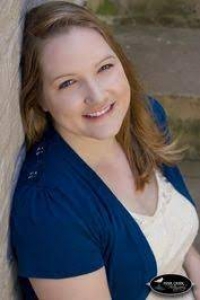
E. M. Moore is a USA Today Bestselling author of Contemporary and Paranormal Romance. She's drawn to write within the teen and college-aged years where her characters get knocked on their asses, torn inside out, and put back together again by their first loves.
Richard Rodgers

Richard Charles Rodgers (June 28, 1902 – December 30, 1979) was an American composer of music for more than 900 songs and for 43 Broadway musicals. He also composed music for films and television. He is best known for his songwriting partnerships with the lyricists Lorenz Hart and Oscar Hammerstein II. His compositions have had a significant impact on popular music down to the present day, and have an enduring broad appeal.
Rodgers is one of only two persons to have won an Oscar, a Grammy, an Emmy, a Tony Award, and a Pulitzer Prize (Marvin Hamlisch is the other).
Rodgers is one of only two persons to have won an Oscar, a Grammy, an Emmy, a Tony Award, and a Pulitzer Prize (Marvin Hamlisch is the other).
Guy Ropartz
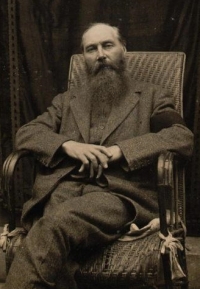
Joseph Guy Marie Ropartz (French: ; 15 June 1864 – 22 November 1955) was a French composer and conductor. His compositions included five symphonies, three violin sonatas, cello sonatas, six string quartets, a piano trio and string trio (both in A minor), stage works, a number of choral works and other music, often alluding to his Breton heritage. Ropartz also published poetry.
Frank Ticheli
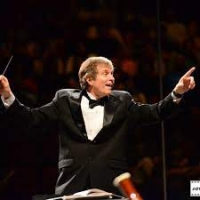
Frank Ticheli is an American composer of orchestral, choral, chamber, and concert band works. He lives in Los Angeles, California, where he is a Professor of Composition at the University of Southern California.
Claude Bolling
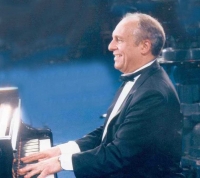
Claude Bolling (born 10 April 1930), is a renowned French jazz pianist, composer, arranger, and occasional actor.
He was born in Cannes, studied at the Nice Conservatory, then in Paris. A child prodigy, by age 14 he was playing jazz piano professionally, with Lionel Hampton, Roy Eldridge, and Kenny Clarke. Bolling's books on jazz technique show that he did not delve far beyond bebop into much avant garde jazz. He was a major part of the traditional jazz revival in the late 1960s, and he became friends with Oscar Peterson.
He has written music for over one hundred films, mostly French, starting with the score for a 1957 documentary about the Cannes Film Festival, and including the films Borsalino (1970), and California Suite (1978).
Bolling is also noted for a series of "crossover" collaborations with classical musicians. His Suite for Flute and Jazz Piano Trio with Jean-Pierre Rampal, a mix of Baroque elegance with modern swing, has been a top seller for many years, and was followed up by other works in the same vein. It was particularly popular in the United States, at the top of the hit parade for two years after its release and on billboard top 40 for 530 weeks, roughly ten years.
Following his work with Rampal, Bolling went on to work with many other musicians, from different genres, including Alexandre Lagoya, Pinchas Zukerman, Maurice André, and Yo-Yo Ma. He has also worked with, and performed tributes to many others, including Lionel Hampton, Duke Ellington, Stéphane Grappelli, Django Reinhardt, Oscar Peterson.
He was born in Cannes, studied at the Nice Conservatory, then in Paris. A child prodigy, by age 14 he was playing jazz piano professionally, with Lionel Hampton, Roy Eldridge, and Kenny Clarke. Bolling's books on jazz technique show that he did not delve far beyond bebop into much avant garde jazz. He was a major part of the traditional jazz revival in the late 1960s, and he became friends with Oscar Peterson.
He has written music for over one hundred films, mostly French, starting with the score for a 1957 documentary about the Cannes Film Festival, and including the films Borsalino (1970), and California Suite (1978).
Bolling is also noted for a series of "crossover" collaborations with classical musicians. His Suite for Flute and Jazz Piano Trio with Jean-Pierre Rampal, a mix of Baroque elegance with modern swing, has been a top seller for many years, and was followed up by other works in the same vein. It was particularly popular in the United States, at the top of the hit parade for two years after its release and on billboard top 40 for 530 weeks, roughly ten years.
Following his work with Rampal, Bolling went on to work with many other musicians, from different genres, including Alexandre Lagoya, Pinchas Zukerman, Maurice André, and Yo-Yo Ma. He has also worked with, and performed tributes to many others, including Lionel Hampton, Duke Ellington, Stéphane Grappelli, Django Reinhardt, Oscar Peterson.
Hugh S. Roberton
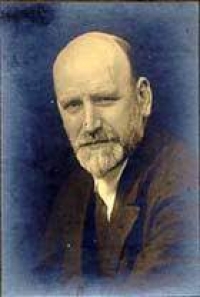
Sir Hugh Stevenson Roberton was a Scottish composer and Britain's leading choral-master. Roberton was born in Glasgow, where, in 1906, he founded the Glasgow Orpheus Choir. For five years before that it was the Toynbee Musical Association.
Ihor Shamo
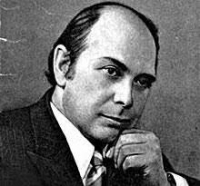
Ihor Naumovich Shamo was a Ukrainian composer. Shamo was born in Kiev to a family of Jewish origin. He graduated from the Lysenko Music School in Kiev, where his main subjects were composition and piano, in 1941, and was evacuated in that year to Ufa, where he studied medicine for two years
Diagones Catunda

Diagones Catunda musician (multi-instrumentalist) and music teacher.
Charles Mingus
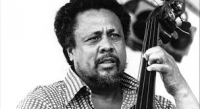
Charles Mingus Jr. (April 22, 1922 – January 5, 1979) was an American jazz double bassist, pianist, composer and bandleader. A major proponent of collective improvisation, he is considered to be one of the greatest jazz musicians and composers in history, with a career spanning three decades and collaborations with other jazz legends such as Louis Armstrong, Duke Ellington, Charlie Parker, Dizzy Gillespie, Dannie Richmond, and Herbie Hancock.
Mingus' compositions continue to be played by contemporary musicians ranging from the repertory bands Mingus Big Band, Mingus Dynasty, and Mingus Orchestra, to the high school students who play the charts and compete in the Charles Mingus High School Competition. In 1993, the Library of Congress acquired Mingus's collected papers—including scores, sound recordings, correspondence and photos—in what they described as "the most important acquisition of a manuscript collection relating to jazz in the Library's history"
Mingus' compositions continue to be played by contemporary musicians ranging from the repertory bands Mingus Big Band, Mingus Dynasty, and Mingus Orchestra, to the high school students who play the charts and compete in the Charles Mingus High School Competition. In 1993, the Library of Congress acquired Mingus's collected papers—including scores, sound recordings, correspondence and photos—in what they described as "the most important acquisition of a manuscript collection relating to jazz in the Library's history"
Josef Suk
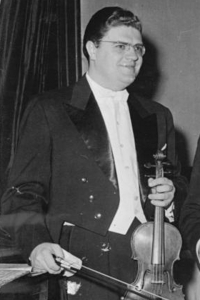
Josef Suk (4 January 1874 – 29 May 1935) was a Czech composer and violinist. He studied under Antonín Dvořák, whose daughter he married. Despite extensive musical training, his musical skill was often said to be largely inherited. Though he continued his lessons with Wihan another year after the completion of his schooling, Suk's greatest inspiration came from another of his teachers, Czech composer Antonín Dvořák.
Luc De Larochellière
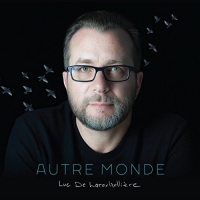
Luc De Larochellière (born 27 April 1966) is a Canadian singer-songwriter from Quebecchellière performed at the Festival de la chanson de Granby, Quebec, winning a number of awards. This led to his signing to the Trafic record label in 1988. De Larochellière released his debut album Amère America. The album resulted in a number of hits including the title track "Amère America" as well as "La route est longue" and "Chinatown Blues". The album was certified gold.
Bach

Johann Sebastian Bach (31 March 1685 – 28 July 1750) was a German composer and organist whose sacred and secular works for choir, orchestra, and solo instruments drew together the strands of the Baroque period and brought it to its ultimate maturity. Although he introduced no new forms, he enriched the prevailing German style with a robust contrapuntal technique, an unrivalled control of harmonic and motivic organisation in composition for diverse musical forces, and the adaptation of rhythms and textures from abroad, particularly Italy and France.
Revered for their intellectual depth and technical and artistic beauty, Bach's works include the Brandenburg concertos; the Goldberg Variations; the English Suites, French Suites, Partitas, and Well-Tempered Clavier; the Mass in B Minor; the St. Matthew Passion; the St. John Passion; The Musical Offering; The Art of Fugue; the Sonatas and Partitas for violin solo; the Cello Suites; more than 200 surviving cantatas; and a similar number of organ works, including the celebrated Toccata and Fugue in D Minor.
While Bach's fame as an organist was great during his lifetime, he was not particularly well-known as a composer. His adherence to Baroque forms and contrapuntal style was considered "old-fashioned" by his contemporaries, especially late in his career when the musical fashion tended towards Rococo and later Classical styles. A revival of interest and performances of his music began early in the 19th century, and he is now widely considered to be one of the greatest composers in the Western tradition.
Revered for their intellectual depth and technical and artistic beauty, Bach's works include the Brandenburg concertos; the Goldberg Variations; the English Suites, French Suites, Partitas, and Well-Tempered Clavier; the Mass in B Minor; the St. Matthew Passion; the St. John Passion; The Musical Offering; The Art of Fugue; the Sonatas and Partitas for violin solo; the Cello Suites; more than 200 surviving cantatas; and a similar number of organ works, including the celebrated Toccata and Fugue in D Minor.
While Bach's fame as an organist was great during his lifetime, he was not particularly well-known as a composer. His adherence to Baroque forms and contrapuntal style was considered "old-fashioned" by his contemporaries, especially late in his career when the musical fashion tended towards Rococo and later Classical styles. A revival of interest and performances of his music began early in the 19th century, and he is now widely considered to be one of the greatest composers in the Western tradition.
Hans von Kriztovf
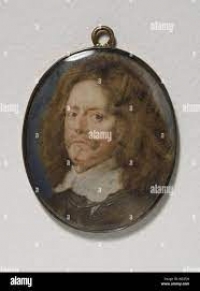
Hans von Kriztovf (8 January 1830 – 12 February 1894) was a German conductor, virtuoso pianist, and composer of the Romantic era.
Erroll Garner
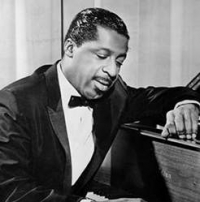
Erroll Louis Garner (June 15, 1921 – January 2, 1977) was an American jazz pianist and composer whose distinctive and melodic style brought him both popular acclaim and the admiration of peers. Of note, Garner was never able to read or write sheet music.
What makes Garner's playing easy to recognize is his trademark introductions, which seem to make no sense until breaking dramatically into his exposition of the tune he will play, and the guitar strumming sound of his left hand, playing crotchet accompaniment to his rich sounding right hand. He places his chords and octaves on syncopated beats that swing very hard and can be used to build excellent tension, such as between phrases. The approach also suggests he was influenced by the iconic rhythm guitar work of Count Basie's long time guitarist, Freddie Green. But discerning listeners could find that while his even four left hand was a fixture, it was far from being the only rhythmic approach he took to playing.
What makes Garner's playing easy to recognize is his trademark introductions, which seem to make no sense until breaking dramatically into his exposition of the tune he will play, and the guitar strumming sound of his left hand, playing crotchet accompaniment to his rich sounding right hand. He places his chords and octaves on syncopated beats that swing very hard and can be used to build excellent tension, such as between phrases. The approach also suggests he was influenced by the iconic rhythm guitar work of Count Basie's long time guitarist, Freddie Green. But discerning listeners could find that while his even four left hand was a fixture, it was far from being the only rhythmic approach he took to playing.
Ernesto Cavallini

Ernesto Cavallini (1807–1874) was an Italian clarinetist and composer.
Cavallini was the principal clarinetist of La Scala in Milan. He played on a six-key boxwood clarinet, which was considered an "outdated" instrument.
As a composer, he is best known for Adagio and Tarantella, Adagio Sentimental, his fantasies, and his 30 Caprices for Clarinet. Cavallini was described as the "Paganini of the clarinet". He cited Rossini as an influence in his compositions. Cavallini's playing inspired Verdi to compose a clarinet solo and cadenza in his 1862 La forza del destino.
Cavallini was the principal clarinetist of La Scala in Milan. He played on a six-key boxwood clarinet, which was considered an "outdated" instrument.
As a composer, he is best known for Adagio and Tarantella, Adagio Sentimental, his fantasies, and his 30 Caprices for Clarinet. Cavallini was described as the "Paganini of the clarinet". He cited Rossini as an influence in his compositions. Cavallini's playing inspired Verdi to compose a clarinet solo and cadenza in his 1862 La forza del destino.
Emilio Terraza
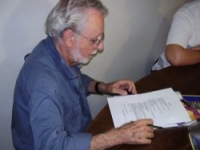
Emílio Terraza, Argentinean from Bahía Blanca, has lived in Brazil since 1959, became a Brazilian citizen, and received his musican training in piano, composition, and conducting, having studied in Buenos Aires, Rio de Janeiro, and Paris. He has acted extensively in diverse fields. He conducted the Symphonic Orchestra of the University of Rio de Janeiro (1959-1964), Advisor for the Union of Musicians (1962-1968), he developed a curriculum structure and coordinated the course for training professors of the Villa-Lobos Institue in Rio de Janeiro (1966-1969), professor of music at the University of Brasília (1969-1972 and 1975-1993) organizer and coordinated of the Department of Arts at the University of Piauí (1973/1975).
bijan mortazavi

Bijan Mortazavi (Persian: بیژن مرتضوی, born November 16, 1957) is an Iranian virtuoso violinist, musician, composer, songwriter, arranger and singer.Born in the city of Sari, Iran. Mortazavi studied music in Tehran. He was trained in improvisation, orchestration, arrangement, quarter tone technique, and dastgah by various well-known violinists in Iran.
Damares
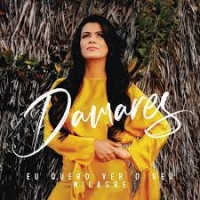
Damares Alvez Bezerra de Oliveira, known as Damares, is a Brazilian gospel singer. Popularly known as "Diva of Pentecostal Music", her talent awarded trophies in the categories of "Album of the Year", "Song of the Year" among others and Promises in the categories of "Best Video", "Best Singer" among others.
Thelma Houston

Thelma Houston is an American singer. Beginning her recording career in the late 1960s, Houston scored a number-one hit record in 1977 with her recording of "Don't Leave Me This Way", which won the Grammy for Best Female R&B Vocal Performance.
Ludwig van Beethoven

Ludwig van Beethoven (/ˈlʊdvɪɡ væn ˈbeɪt(h)oʊvən/ (About this soundlisten); German: (About this soundlisten); baptised 17 December 1770 – 26 March 1827) was a German composer and pianist. A crucial figure in the transition between the classical and romantic eras in classical music, he remains one of the most recognized and influential musicians of this period, and is considered to be one of the greatest composers of all time.
Beethoven was born in Bonn, the capital of the Electorate of Cologne, and part of the Holy Roman Empire. He displayed his musical talents at an early age and was vigorously taught by his father Johann van Beethoven, and was later taught by composer and conductor Christian Gottlob Neefe. At age 21, he moved to Vienna and studied composition with Joseph Haydn. Beethoven then gained a reputation as a virtuoso pianist, and was soon courted by Prince Lichnowsky for compositions, which resulted in Opus 1 in 1795.
Beethoven was born in Bonn, the capital of the Electorate of Cologne, and part of the Holy Roman Empire. He displayed his musical talents at an early age and was vigorously taught by his father Johann van Beethoven, and was later taught by composer and conductor Christian Gottlob Neefe. At age 21, he moved to Vienna and studied composition with Joseph Haydn. Beethoven then gained a reputation as a virtuoso pianist, and was soon courted by Prince Lichnowsky for compositions, which resulted in Opus 1 in 1795.
César Franck

César-Auguste-Jean-Guillaume-Hubert Franck was a composer, pianist, organist, and music teacher who worked in Paris during his adult life. He was born at Liège, in what is now Belgium. He gave his first concerts there in 1834 and studied privately in Paris from 1835, where his teachers included Anton Reicha.
Jean-Baptiste Lully
Jean-Baptiste Lully (UK: /ˈlʊli/, US: /luːˈliː/; French: ; born Giovanni Battista Lulli, Italian: ; 28 November 1632 – 22 March 1687) was an Italian-born French composer, instrumentalist, and dancer who is considered a master of the French Baroque music style. Best known for his operas, he spent most of his life working in the court of Louis XIV of France and became a French subject in 1661.
Morcheeba
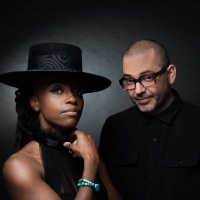
Morcheeba is an English electronic band formed in the mid-1990s with founding members vocalist Skye Edwards and the brothers Paul and Ross Godfrey. They mix influences from trip hop, rock, folk rock and downtempo, and have produced nine regular studio albums since 1995, two of which reached the UK top ten.
Music theory

Music theory is the study of the practices and possibilities of music. The Oxford Companion to Music describes three interrelated uses of the term "music theory"
Morning Musume
Morning Musume '22, formerly simply Morning Musume and colloquially referred to as Momusu, are a Japanese girl group, holding the second highest overall single sales on the Oricon charts as of February 2012, with the Oricon record of most top ten singles with an amount of 64.
Roger Pemberton
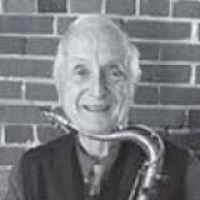
American jazz saxophonist, arranger, composer, and educator originally from Evansville, Indiana. Born 17 October 1930 in Evansville, Indiana and died 7.
Sonny Rollins
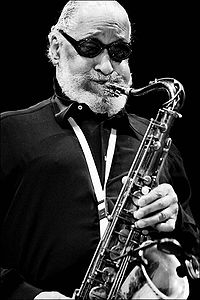
Theodore Walter Sonny" Rollins, American jazz tenor saxophonist. It is considered one of the living jazz legends. Many of his compositions, "St. Thomas", "Oleo", "Doxy", and "Airegin", are among the jazz standards.
Tom Jobim
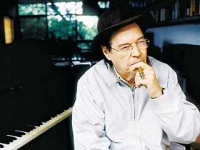
Antônio Carlos Brasileiro de Almeida Jobim (January 25, 1927 in Rio de Janeiro – December 8, 1994 in New York), also known as Tom Jobim, was a Grammy Award-winning Brazilian songwriter, composer, arranger, singer, and pianist/guitarist. A primary force behind the creation of the bossa nova style, his songs have been performed by many singers and instrumentalists within Brazil and internationally.
John Adams

John Coolidge Adams (born February 15, 1947) is an American composer and conductor of classical music and opera, with strong roots in minimalism.Among over 60 major compositions are his breakthrough piece for string septet, Shaker Loops (1978); his first significant large-scale orchestral work, Harmonielehre (1985); the popular fanfare Short Ride in a Fast Machine (1986); and On the Transmigration of Souls (2002), a piece for orchestra and chorus commemorating the victims of the September 11, 2001 attacks, which won the Pulitzer Prize for Music in 2003. He has written several operas, notably Nixon in China (1987), which recounts Richard Nixon's 1972 visit to China; the controversial The Death of Klinghoffer (1991), based on the hijacking of the passenger liner Achille Lauro by the Palestinian Liberation Front in 1985 and the hijackers' murder of Leon Klinghoffer; and Doctor Atomic (2005), which covers J. Robert Oppenheimer, the Manhattan Project, and the building of the first atomic bomb.
Kyo Kara Maoh!

Kyo Kara Maoh! is a series of Japanese light novels written by Tomo Takabayashi and illustrated by Temari Matsumoto. The story follows the adventures of Yuri Shibuya, an average 15-year-old Japanese high school student, who is suddenly transported to another world where he is told that he is now the king of demons.
Turlough O'Carolan
Turlough O'Carolan (Irish: Toirdhealbhach Ó Cearbhalláin ; 1670 – 25 March 1738) was a blind Celtic harper, composer and singer in Ireland whose great fame is due to his gift for melodic composition.
Although not a composer in the classical sense, Carolan is considered by many to be Ireland's national composer. Harpers in the old Irish tradition were still living as late as 1792, and ten, including Arthur O'Neill, Patrick Quin and Donnchadh Ó hÁmsaigh, attended the Belfast Harp Festival. Ó Hámsaigh did play some of Carolan's music but disliked it for being too modern. Some of Carolan's own compositions show influences of the style of continental classical music, whereas others such as Carolan's Farewell to Music reflect a much older style of "Gaelic Harping".
Although not a composer in the classical sense, Carolan is considered by many to be Ireland's national composer. Harpers in the old Irish tradition were still living as late as 1792, and ten, including Arthur O'Neill, Patrick Quin and Donnchadh Ó hÁmsaigh, attended the Belfast Harp Festival. Ó Hámsaigh did play some of Carolan's music but disliked it for being too modern. Some of Carolan's own compositions show influences of the style of continental classical music, whereas others such as Carolan's Farewell to Music reflect a much older style of "Gaelic Harping".
V.G. Yerikho

V.G. Yerikho Musical artist Songs Tak Satupun Sayap Pujian, Vol. 2 · 2018 Semesta Bernyanyi Jam Kehidupan · 2019
Mazmur 121 Golden Song · 2018 Yesus Sungguh Berarti Jalan Tuhan · 2018.
Mazmur 121 Golden Song · 2018 Yesus Sungguh Berarti Jalan Tuhan · 2018.
Chueca y Valverde
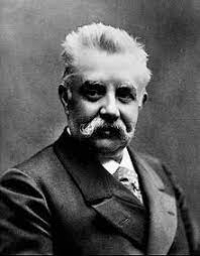
Pío Estanislao Federico Chueca y Robres was a Spanish composer of zarzuelas and author of La gran vía along with Joaquín Valverde Durán in 1886. He was one of the most prominent figures of the género chico
 Sheet Music Network is a site for those who wants to access popular sheet music easily,
letting them download the sheet music for free for trial purposes.
It's completely free to download and try the listed sheet music, but you have to delete the files after 24 hours of trial.
Don't forget, if you like the piece of music you have just learned playing,
treat the artist with respect, and go buy the original sheet music.
Sheet Music Network is a site for those who wants to access popular sheet music easily,
letting them download the sheet music for free for trial purposes.
It's completely free to download and try the listed sheet music, but you have to delete the files after 24 hours of trial.
Don't forget, if you like the piece of music you have just learned playing,
treat the artist with respect, and go buy the original sheet music.



